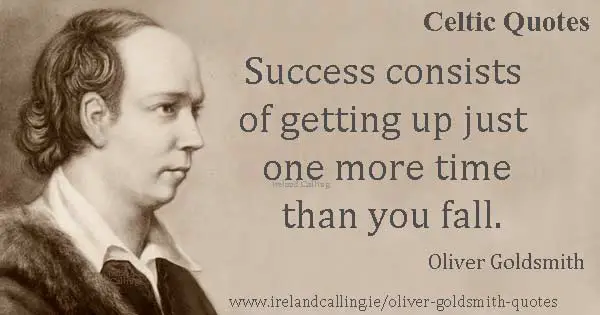Oliver Goldsmith was an Irish writer best known for his novel The Vicar of Wakefield, his long pastoral poem The Deserted Village, and his play She Stoops to Conquer.
Goldsmith was born on 10 November 1728 in either County Longford or County Roscommon in Ireland – the records are unclear.
He was the son of a Church of Ireland clergyman. He went on to study Theology at Trinity College Dublin but lacked the vocation to become a priest like his father.
He was more interested in gambling and living the high life. He moved to London after leaving Trinity and began to make a living as a writer. He quickly gained a reputation as a leading literary figure and became a close friend of Samuel Johnson.
The fact that he was gifted yet led a wayward life led one of his contemporaries, Horace Walpole, to describe him as an “inspired idiot”.
The fact that he once planned to emigrate to America but failed because he missed the ship suggests Walpole may have had a point. In spite of his failings, Goldsmith became one of the most celebrated and best remembered writers of the 18th century.
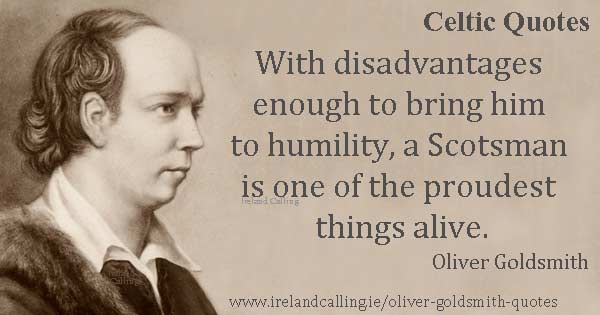
* * *
Don’t let us make imaginary evils, when you know we have so many real ones to encounter.
* * *
Every absurdity has a champion to defend it.
* * *
Ill fares the land, to hastening ills a prey, where wealth accumulates and men decay.
* * *
He who fights and runs away
May live to fight another day;
But he who is battle slain
Can never rise to fight again.

In all my wanderings through this world of care,
In all my griefs – and God has given my share
I still had hopes, my latest hours to crown,
Amidst these humble bowers to lay me down;
To husband out life’s taper at the close,
And keep the flame from wasting, by repose:
I still had hopes, for pride attends us still,
Amidst the swains to show my book-learn’d skill,
Around my fire an evening group to draw,
And tell of all I felt, and all I saw;
And, as a hare, whom hounds and horns pursue,
Pants to the place from whence at first she flew,
I still had hopes, my long vexations past,
Here to return — and die at home at last.
* * *
I have known many of those pretended champions for liberty in my time, yet do I not remember one that was not in his heart and in his family a tyrant.
* * *
They may talk of a comet, or a burning mountain, or some such bagatelle; but to me a modest woman, dressed out in all her finery, is the most tremendous object of the whole creation.
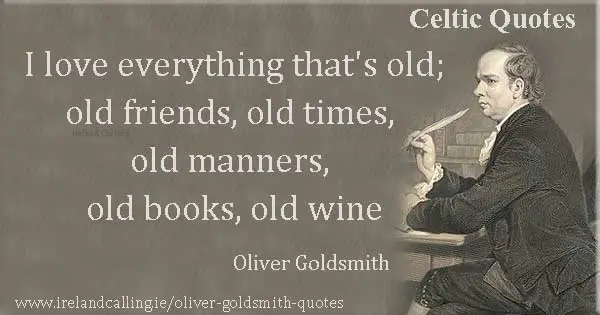
* * *
As the reputation of books is raised not by their freedom from defect, but the greatness of their beauties, so should that of men be prized not for their exemption from fault, but the size of those virtues they are possessed of.
* * *
The nakedness of the indignant world may be clothed from the trimmings of the vain.
* * *
Life has been compared to a race, but the allusion improves by observing, that the most swift are usually the least manageable and the most likely to stray from the course. Great abilities have always been less serviceable to the possessors than moderate ones.
* * *
Law grinds the poor, rich men rule the law.
* * *
A book may be very amusing with numerous errors, or it may be very dull without a single absurdity.
* * *
Ask me no questions, and you’ll be told no lies!
* * *
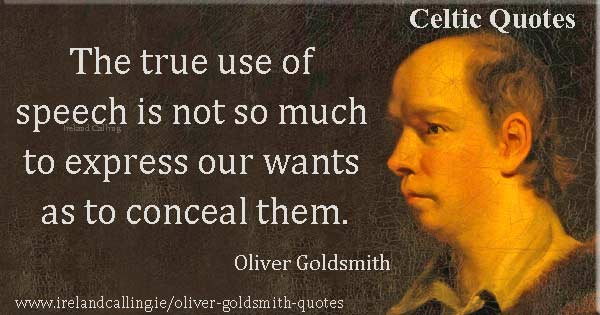
* * *
The more enormous our wealth, the more extensive our fears, all our possessions are paled up with new edicts every day, and hung round with gibbets to scare every invader.
* * *
Modesty seldom resides in a breast that is not enriched with nobler virtues.
* * *
Politeness is the result of good sense and good nature.

Friendship is a disinterested commerce between equals; love an abject intercourse between tyrants and slaves.
* * *
A great source of calamity lies in regret and anticipation; therefore a person is wise who thinks of the present alone, regardless of the past or future.
* * *
Where commerce and capitalism are involved, often times, morality and honour sink to the bottom.
* * *
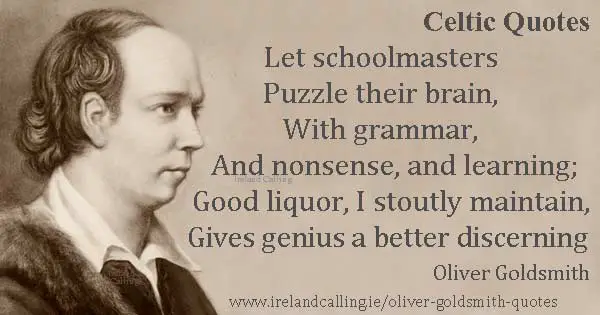
* * *
I armed her against the censure of the world, showed her that books were sweet unreproaching companions to the miserable, and that if they could not bring us to enjoy life, they would at least teach us to endure it.
* * *
People seldom improve when they have no model but themselves to copy after.
* * *
Conscience is a coward, and those faults it has not strength enough to prevent it seldom has justice enough to accuse.

Our greatest glory consists not in never falling, but in rising every time we fall.
* * *
You can preach a better sermon with your life than with your lips.
* * *
The first time I read an excellent book, it is to me just as if I had gained a new friend. When I read a book over I have perused before, it resembles the meeting with an old one.
* * *
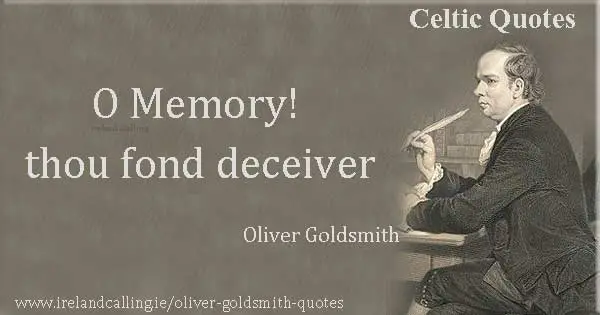

Oliver Goldsmith died in London in 1774. There is a memorial to him in Westminster Abbey. There is also a statue of Goldsmith outside Trinity College in Dublin, where the authorities decided that his literary career more than compensated for his indifferent performance as a student while at the university.
